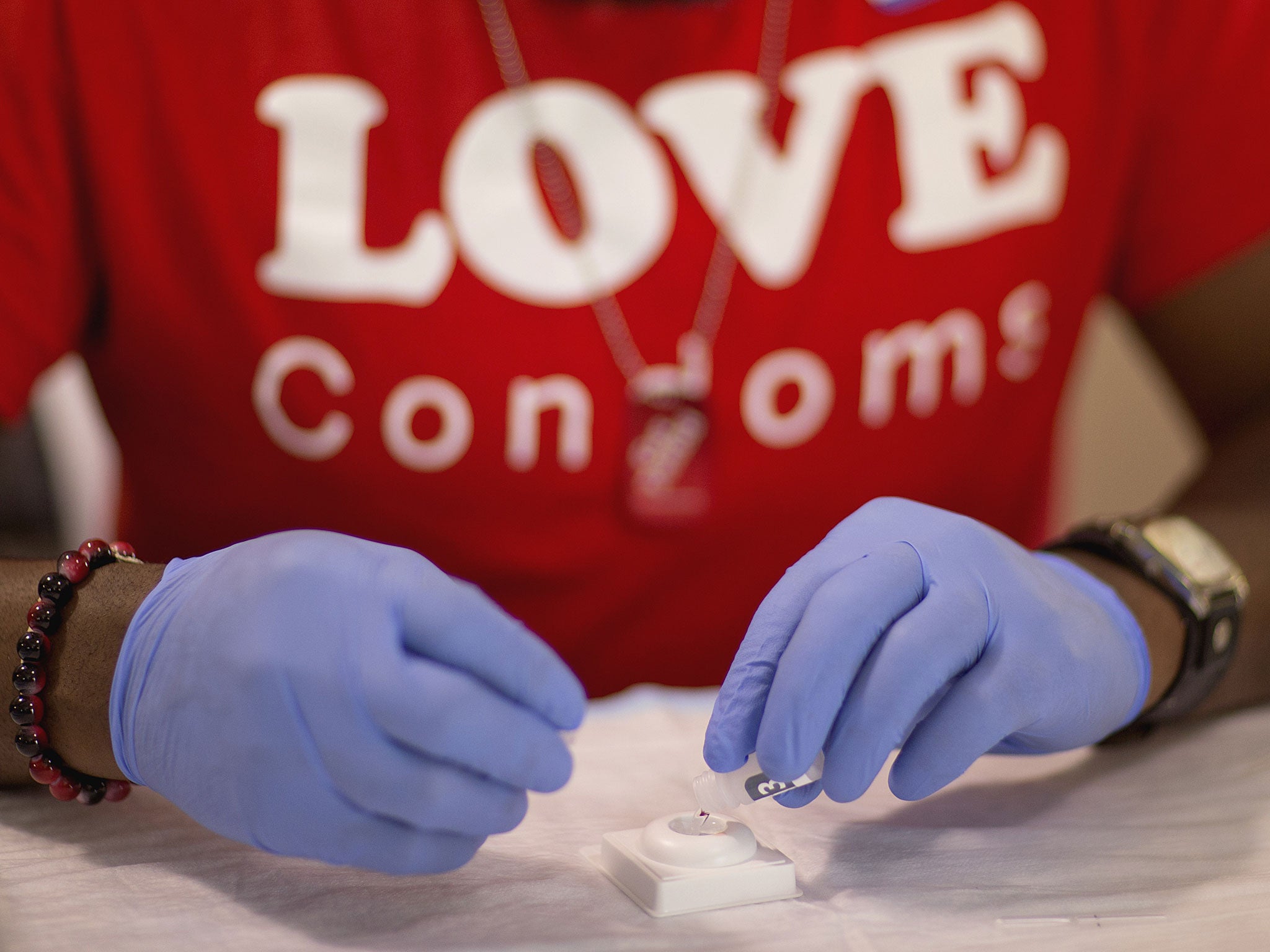WHO says drug treatment for HIV should begin earlier

Your support helps us to tell the story
From reproductive rights to climate change to Big Tech, The Independent is on the ground when the story is developing. Whether it's investigating the financials of Elon Musk's pro-Trump PAC or producing our latest documentary, 'The A Word', which shines a light on the American women fighting for reproductive rights, we know how important it is to parse out the facts from the messaging.
At such a critical moment in US history, we need reporters on the ground. Your donation allows us to keep sending journalists to speak to both sides of the story.
The Independent is trusted by Americans across the entire political spectrum. And unlike many other quality news outlets, we choose not to lock Americans out of our reporting and analysis with paywalls. We believe quality journalism should be available to everyone, paid for by those who can afford it.
Your support makes all the difference.An ambitious plan to roll out HIV treatment to millions more patients around the globe has divided scientists who question whether it is focused on benefiting individuals or halting the spread of the disease.
The World Health Organisation says drug treatment for HIV, which has claimed almost 30 million lives since the 1980s, should start earlier before the immune system is damaged and causes sickness.
But critics say there is pressure to begin treatment sooner because it dramatically cuts the transmission of infection by up to 96 per cent and could reduce the spread of the disease. They say there is not enough evidence to show it benefits individual patients.
They fear if patients are started on drugs earlier before they become sick, they will be less rigorous about taking them, which could increase resistance and lead to treatment failure. Side effects could make compliance worse.
Treating people who are well will add to the costs of the global HIV/Aids programme when there are still millions of people who are unwell and not receiving the drugs they need.
The WHO said the guidelines were based on 24 studies. But the results of a global trial examining the effects of beginning treatment early, called START (Strategic Timing of Antiretroviral Treatment) are still awaited.
Di Gibb, professor of epidemiology and an expert on HIV at the Medical Research Council clinical trials unit in London, said: “In many places in Africa, only 50 per cent of sick patients are getting treatment and drug supplies are often precarious, so we should not be pushing it out to start earlier. WHO are overstating the evidence, especially as the START trial is still ongoing.”
Anton Pozniak, director of HIV services at Chelsea and Westminster Hospital and a member of the WHO advisory group on adult patients with HIV said: “I think the data that you get benefit with earlier treatment is not conclusive. Until we get the results of the START trial it is hard to know how much benefit individuals will get. The debate was around personal benefit and treatment for prevention.”
Gottfried Hirnschall, head of HIV/Aids at the WHO, told a briefing in London: “This is an important step forward. It is not only about keeping people healthy and alive but also about blocking transmission. These drugs have a major preventive effect.”
“The guidelines are ethical. There is a benefit [from treatment] to the individual and to the community. In a situation where there may be resource constraints, priority needs to be given to those who are sickest.”
Costs would increase by 10 per cent from the current $22 billion but as the numbers on treatment rose, the preventive effect of the drugs would see new cases peak in 2025 and begin to fall, Dr Hirnschall said.
“Making the investment now will pay off by 2025 with 3.5 million fewer infections and 3 million fewer deaths,” he said.
He dismissed suggestions it was a way to “treat ourselves out of the epidemic.” There would still be an estimated 800,000 deaths annually by 2025, even if the guidelines were fully implemented, he said.
According to the WHO, 9.7 million patients were receiving HIV drug treatment at the end of 2012 and it was on course to hit the UN target of 15 million by 2015.
The new guidelines say treatment should start when the CD4 cell count - a measure of immunity - falls below 500 instead of the current 350. It will increase the number of patients eligible for drugs from 16.7 million worldwide to 26 million, out of a total 34 million who are infected.
Margaret Chan, WHO Director General, who is to launch the guidelines at the International Aids Society Conference in Kuala Lumpur today said: “These guidelines represent another leap ahead in a trend of ever higher goals. With nearly ten million people now on antiretroviral therapy we see that such prospects – unthinkable just a few years ago – can now fuel the momentum needed to push the HIV epidemic into irreversible decline.”
Join our commenting forum
Join thought-provoking conversations, follow other Independent readers and see their replies
Comments